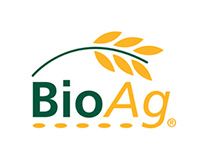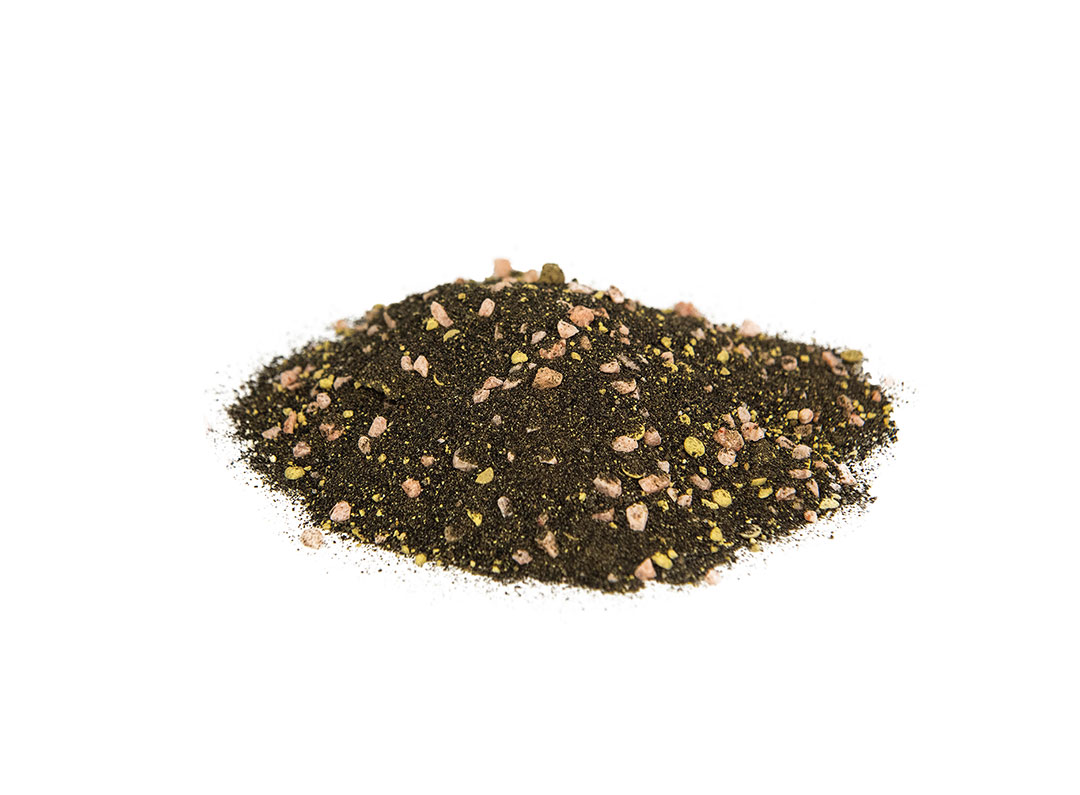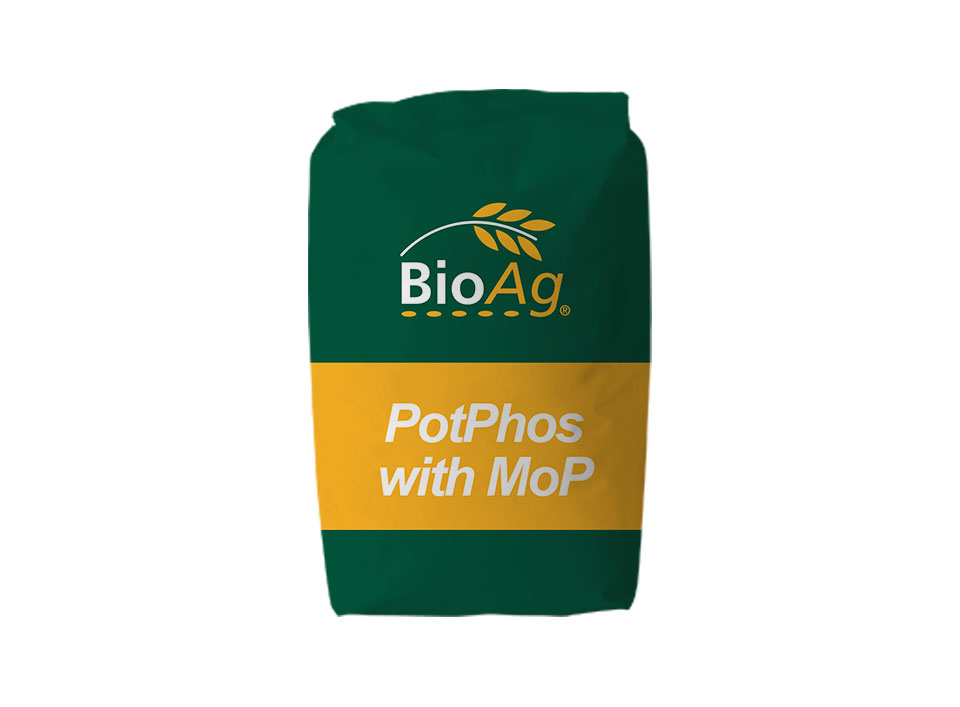PotPhos with MoP
Incorporates Muriate of Potash, Sulphur Bentonite and BioAgPhos in a blend ideal for soils that need phosphorus, sulphur, and calcium such as pastures and grazing.
Phosphorus 9.0% | Potassium 10.0% | Sulphur 8.0% | Calcium 26.0%
Immediate and sustained release phosphate fertiliser made from high-grade reactive phosphate rock composted with BioAg’s proprietary phosphate digester, combined with Muriate of Potash to provide potassium and sulphur bentonite to provide additional sulphur. Phosphorus, 0% water-soluble, and a minimum of 35% Citric Acid and 65% Formic Acid solubility.
PotPhos with MoP is a fertiliser suited to all grazing systems where potassium (K) inputs are required. Ideal for post hay or silage removal or for light soils that struggle to hold potassium and sulphur for extended periods.
- Provides both P and S in sustained release forms.
- Sulphur is included as sulphur bentonite pastilles
- Sulphur is essential for plant growth, the formation of root nodules on legumes, and improves plant health
- Delivers immediate and sustained release of phosphorus
- Small particles enable even distribution; beneficial given P is not mobile in soils
- Well suited to blending with ameliorants such as lime, gypsum, and compost
- Independent analysis shows that 100% of the phosphorus is bioavailable / plant accessible.
More information
Potassium plays a vital role in photosynthesis, starch accumulation, protein synthesis, controlling ionic balance within the plant, metabolism of carbohydrates, disease suppression, and improving the plant’s ability to withstand drought and frost tolerance.
Potassium deficiency frequently occurs where there is a gradual decline in soil potassium levels over time or through the introduction of crops with high potassium requirements into a rotation, like legumes. Read more about Potassium deficiency.
To purchase
Contact your Area Manager today for a tailored plan for your crop.
PotPhos with MoP resources
- How to get more from your Lucerne
Lucerne is a versatile crop. With adequate soil moisture, it provides good grazing and feed quality. With spring in the air, it’s time to start planning, whether it be for hay and/or seed production. The first key step is understanding your soil nutrient status. A soil ...
- Reactive phosphate rock fertiliser
The phosphate rock used in agriculture is known by a number of names. Reactive phosphate rock (RPR), direct application phosphate rock (DAPR), mineral phosphate, soft rock, hard rock. Variants on all of these are names or brands used across the fertiliser industry. Phos...
- Measuring P in soils when using natural phosphate fertilisers
The Olsen and Colwell soil tests are strongly correlated when using water soluble/chemical fertilisers. However, these tests will likely underestimate plant available phosphorus (P) when fertilising with natural fertilisers such as RPR or BioAgPhos. P is an important el...
- Potassium deficiencies
Potassium (K) is an essential nutrient for plant growth and development. Because large amounts are absorbed from the root zone in the production of most crops and pastures, it is classified as a macronutrient. Potassium has many functions within the plant; including pho...


